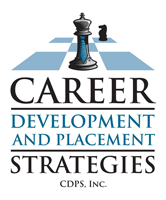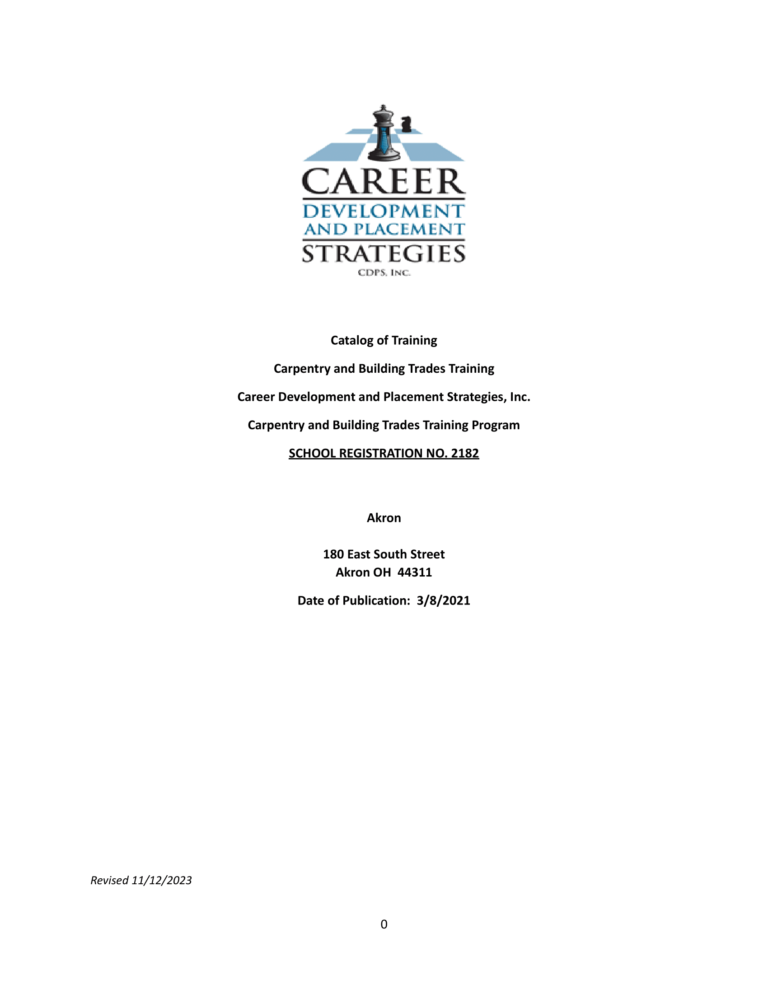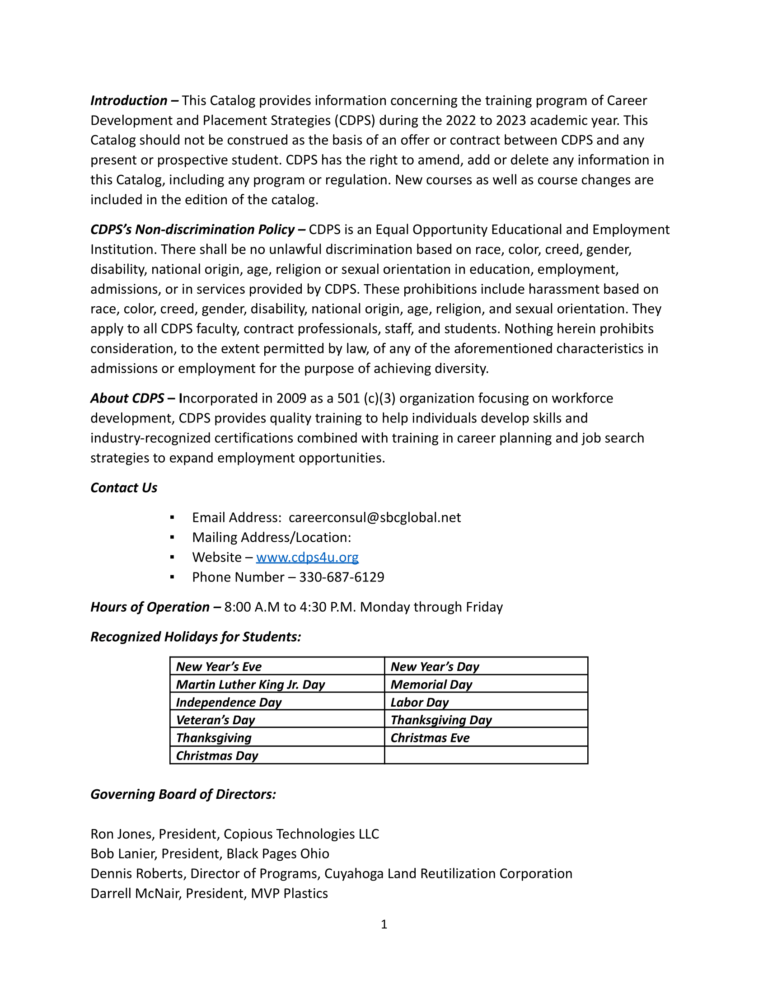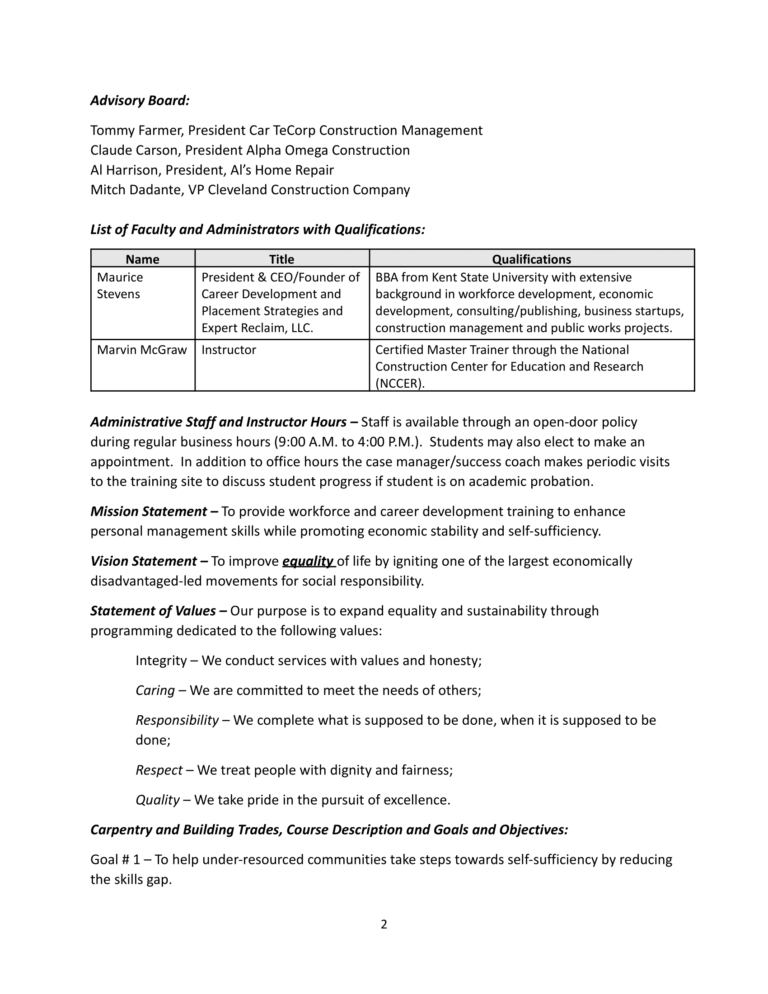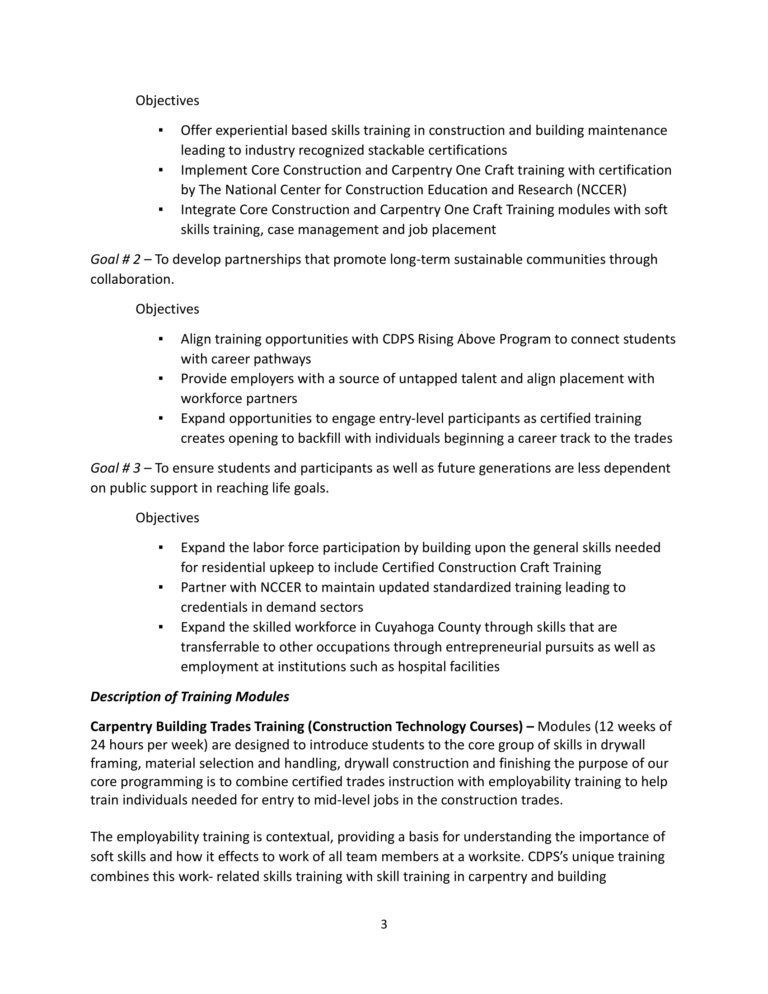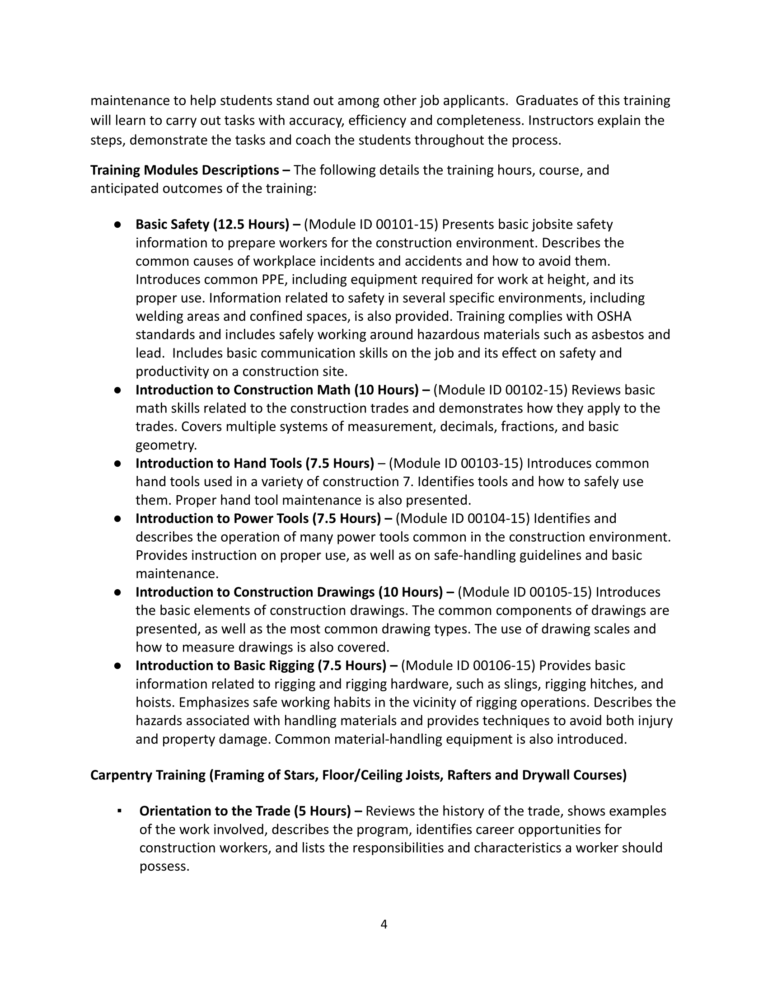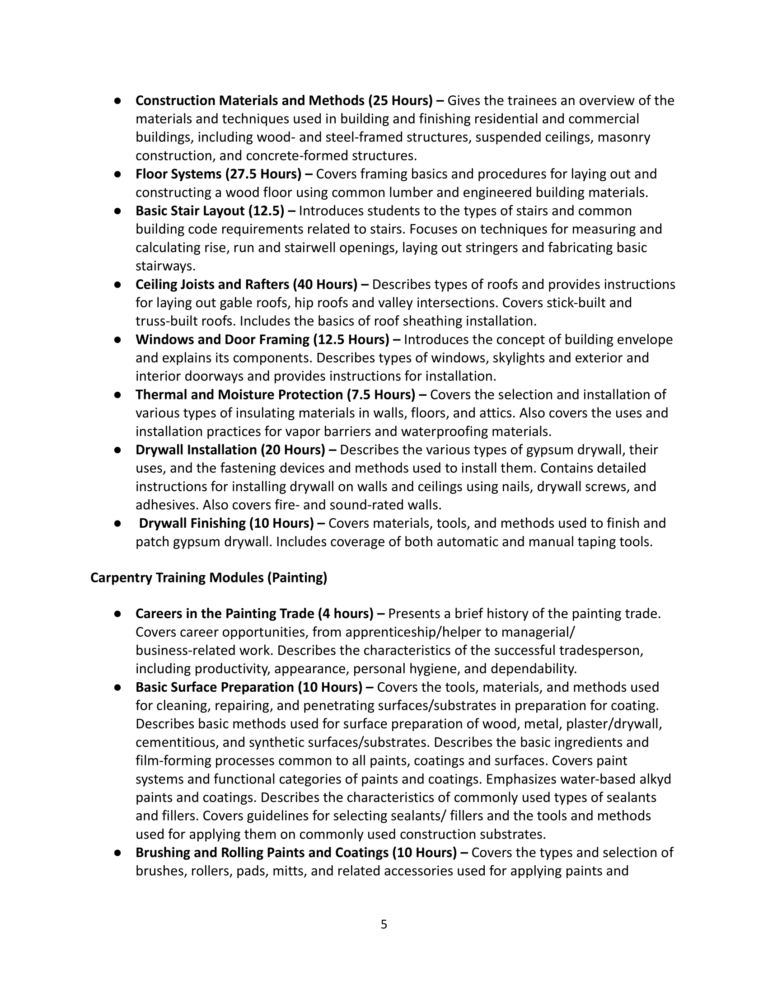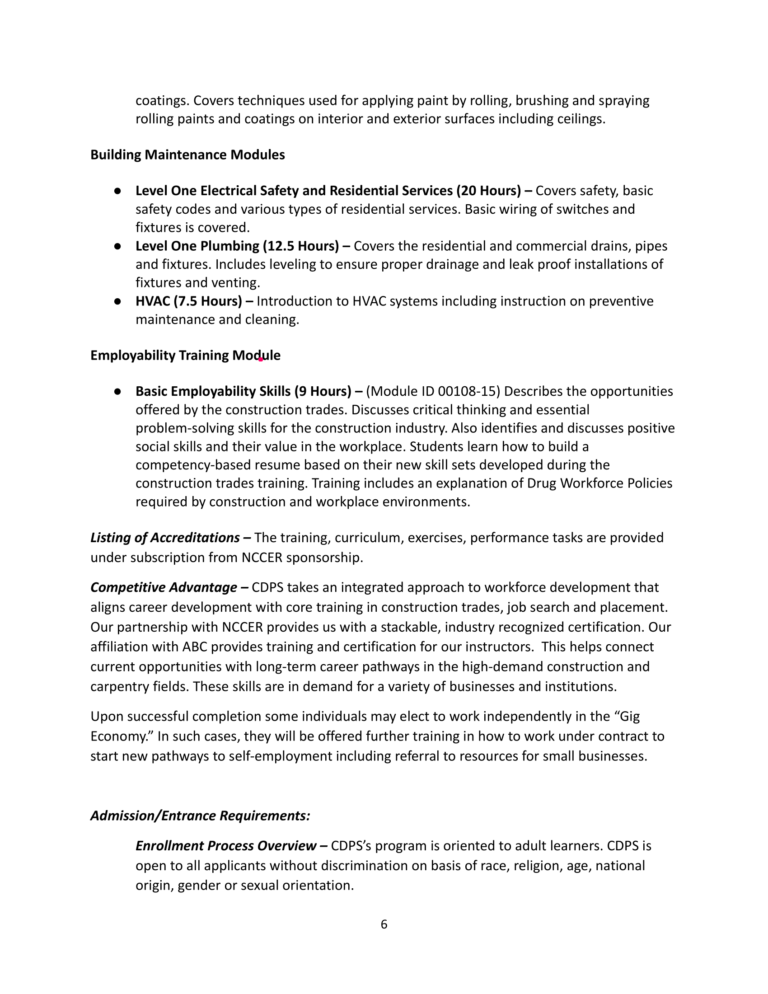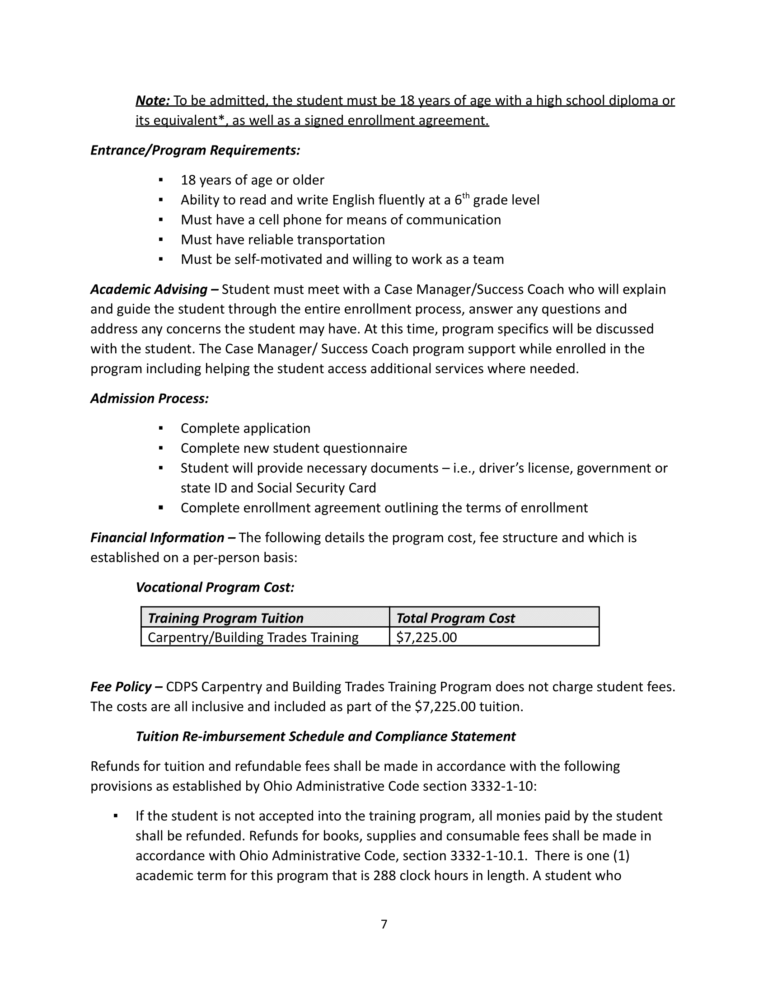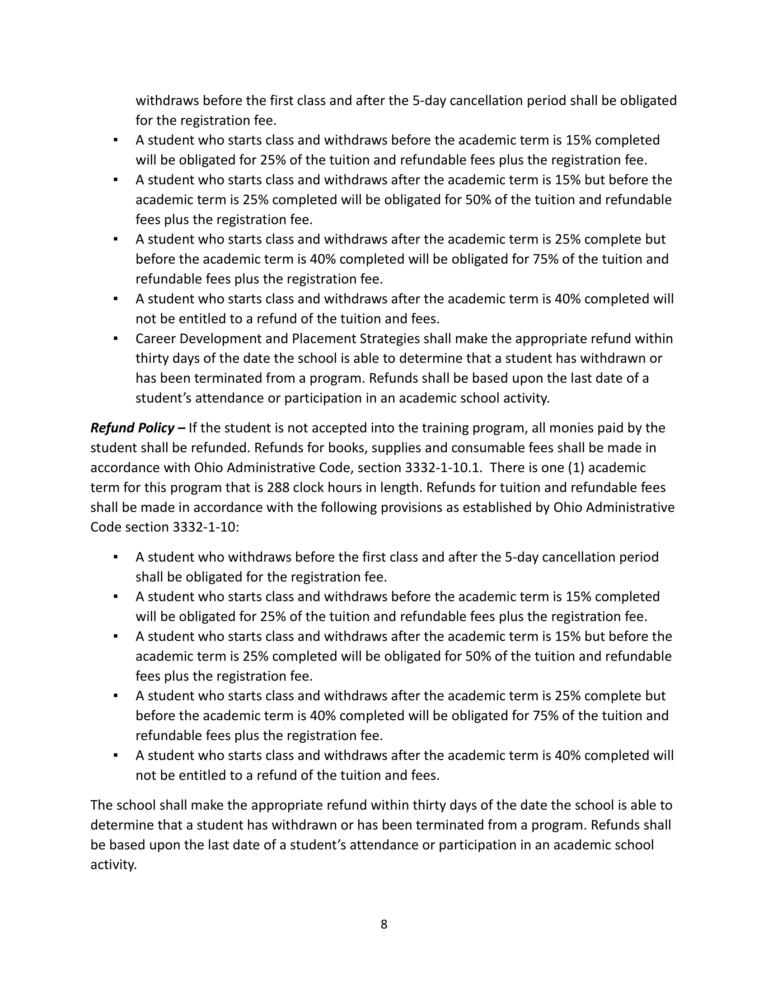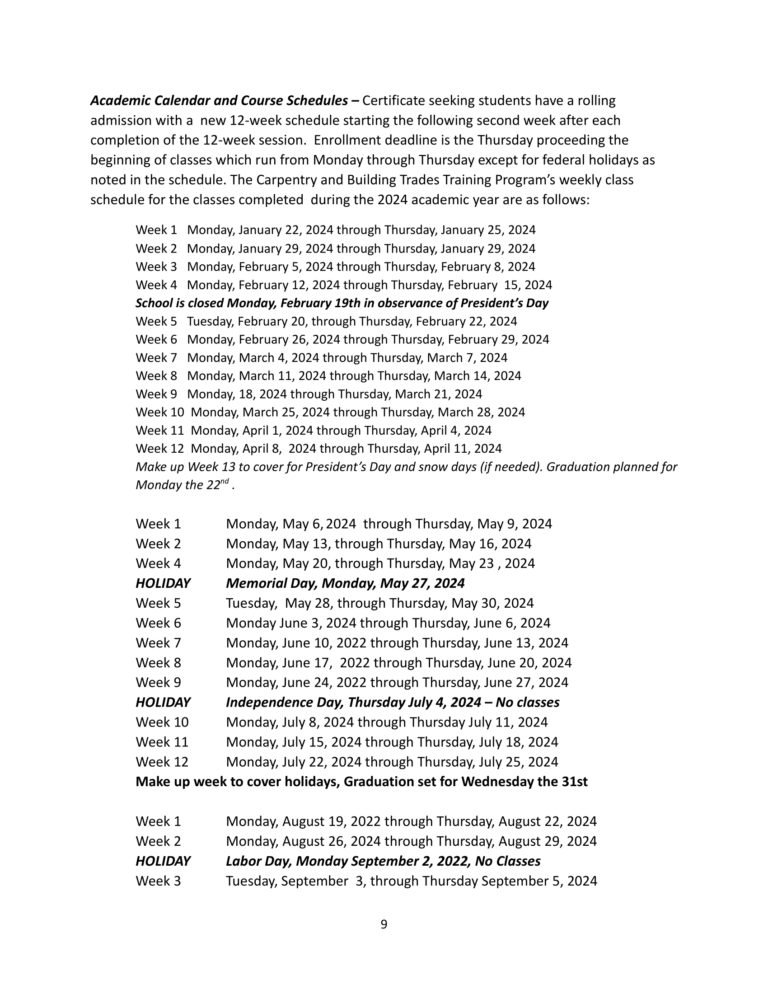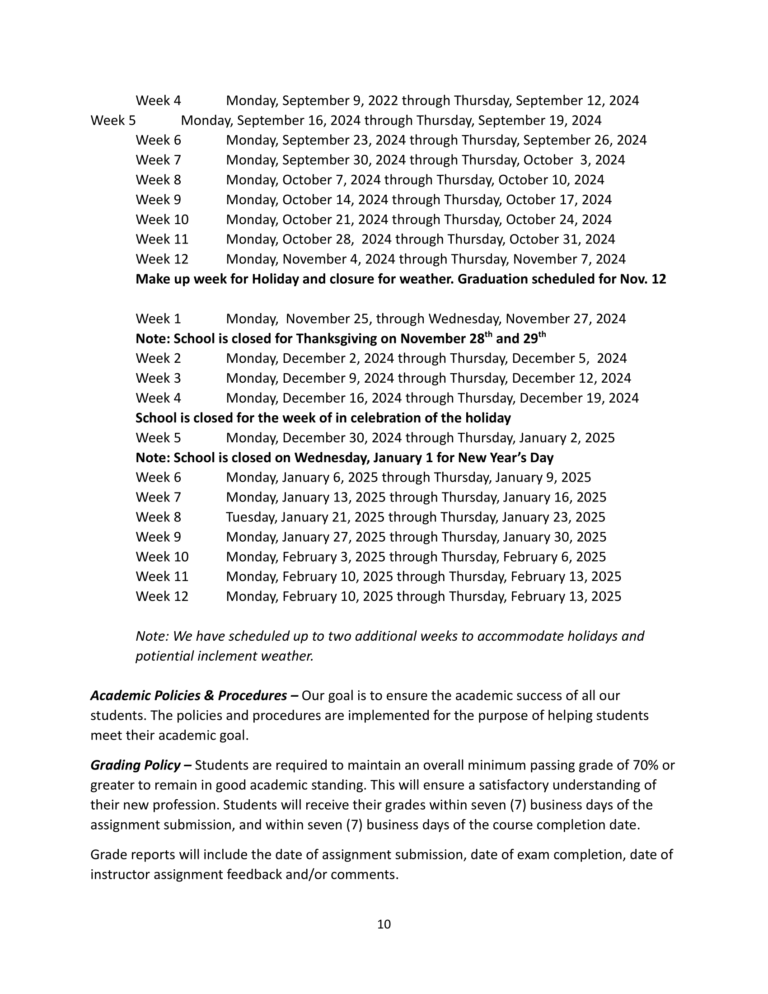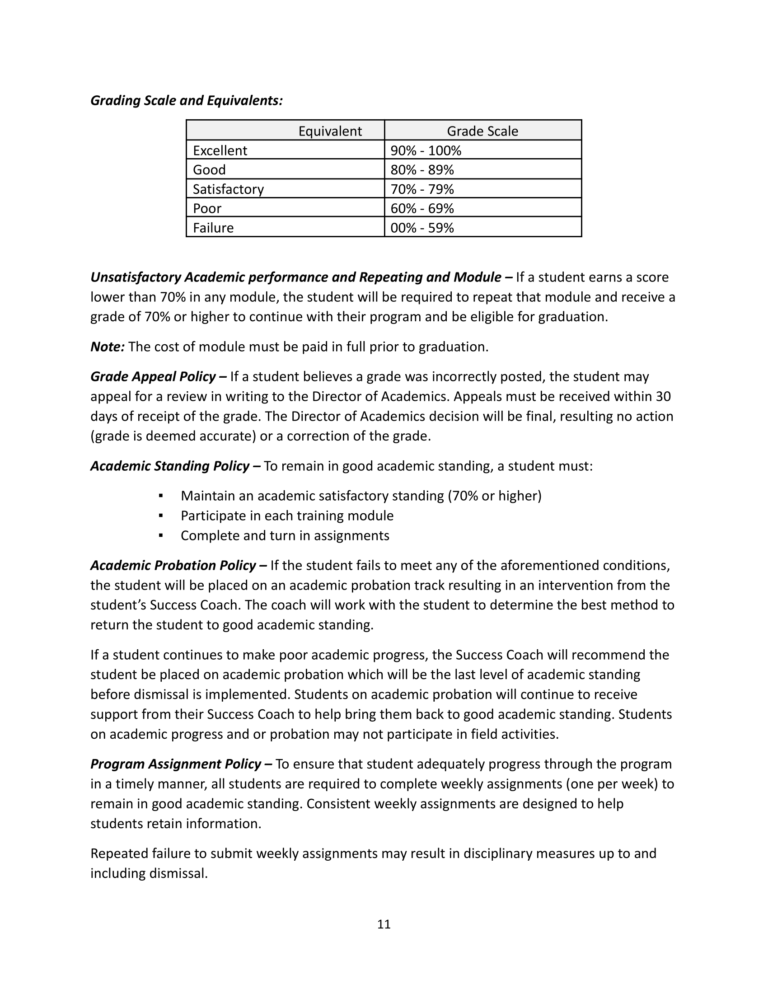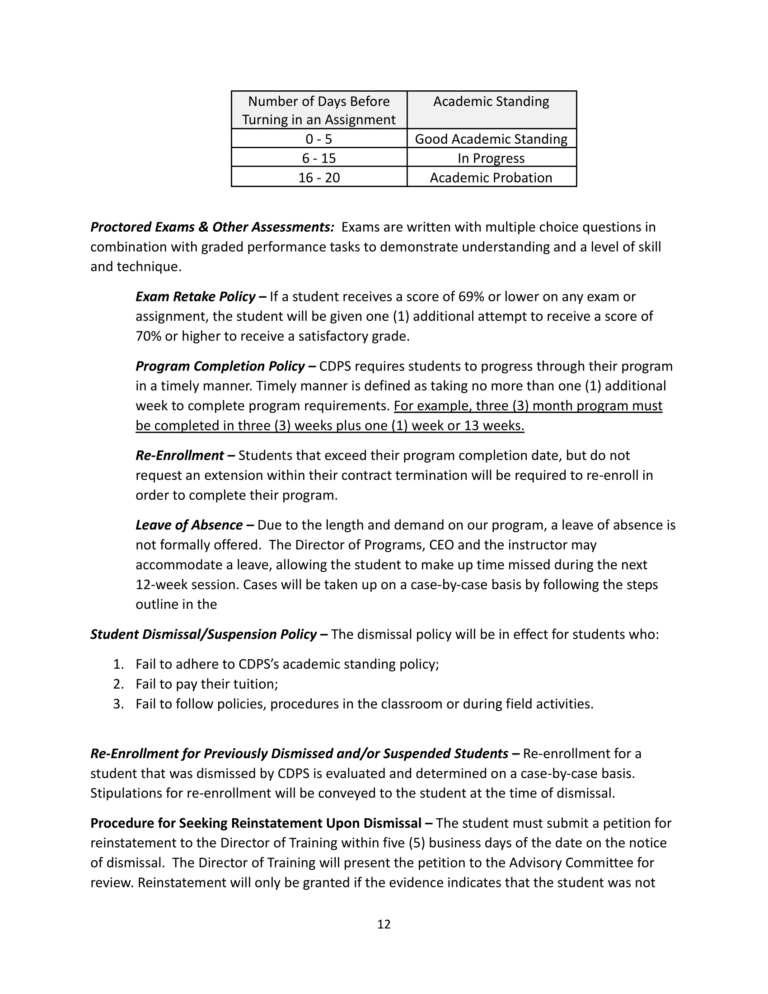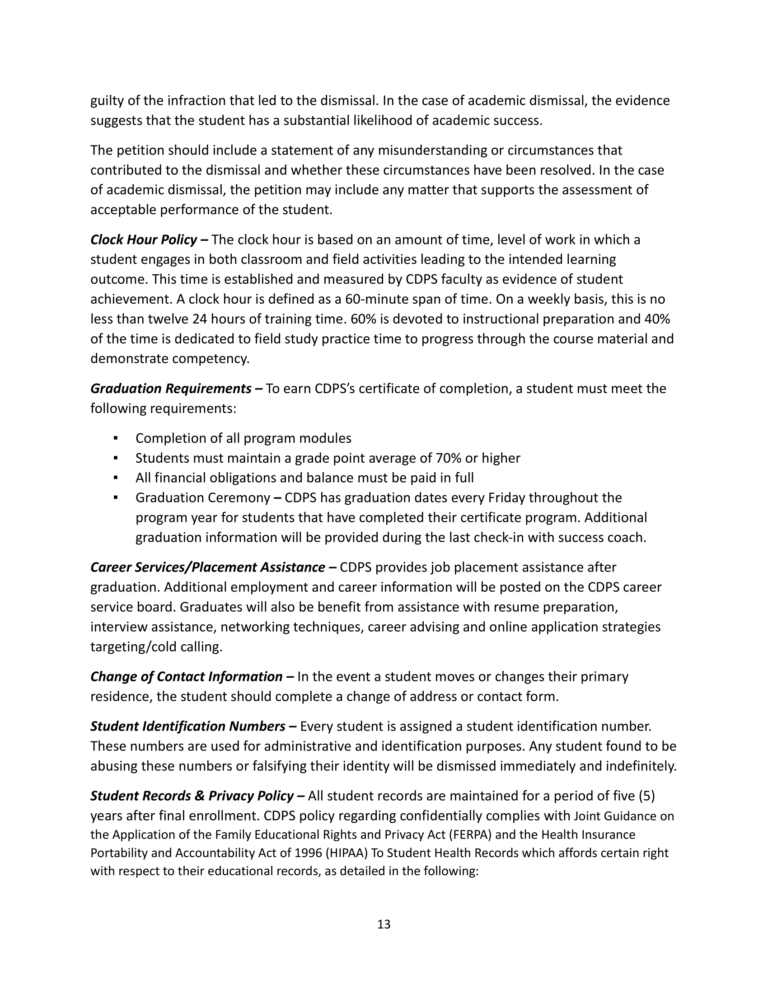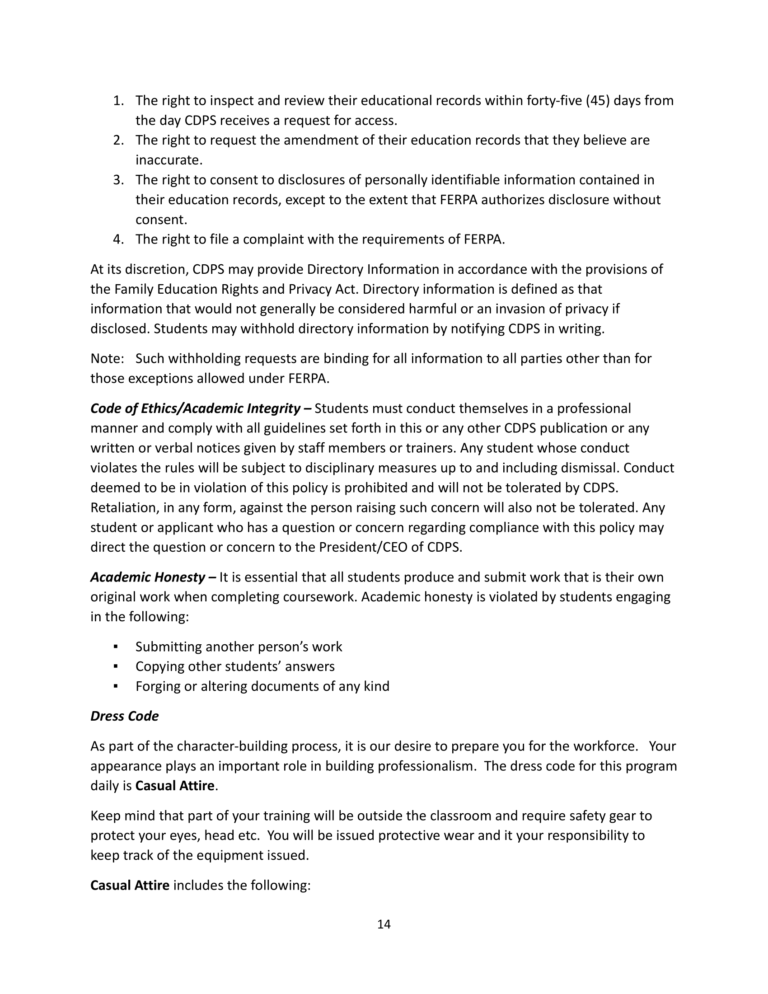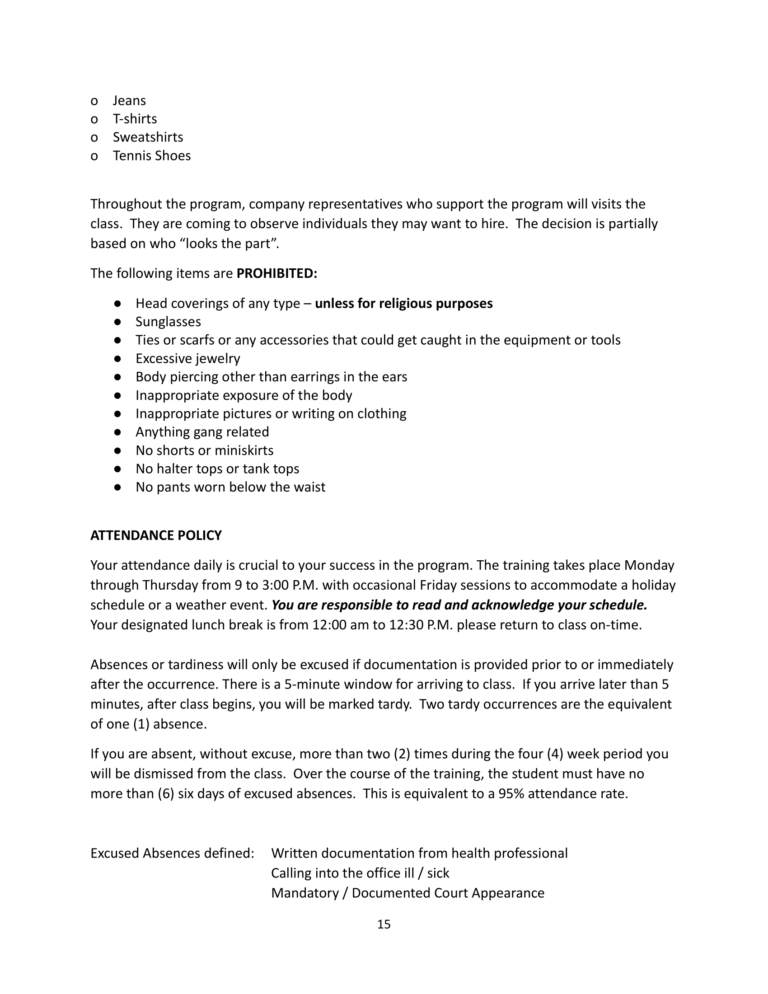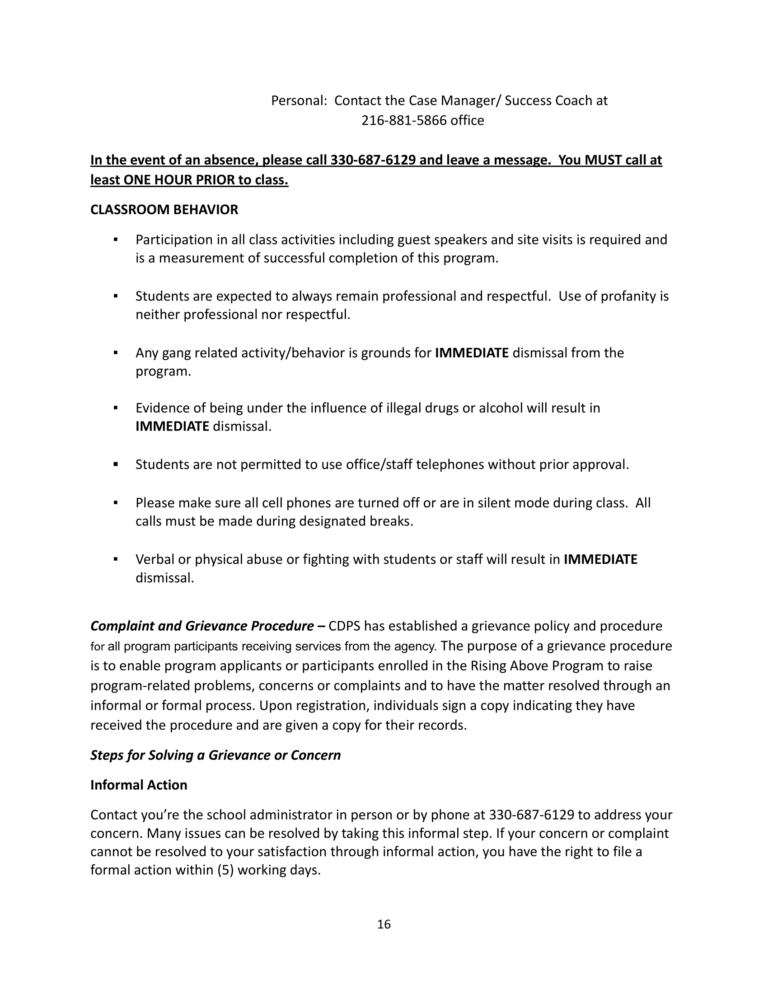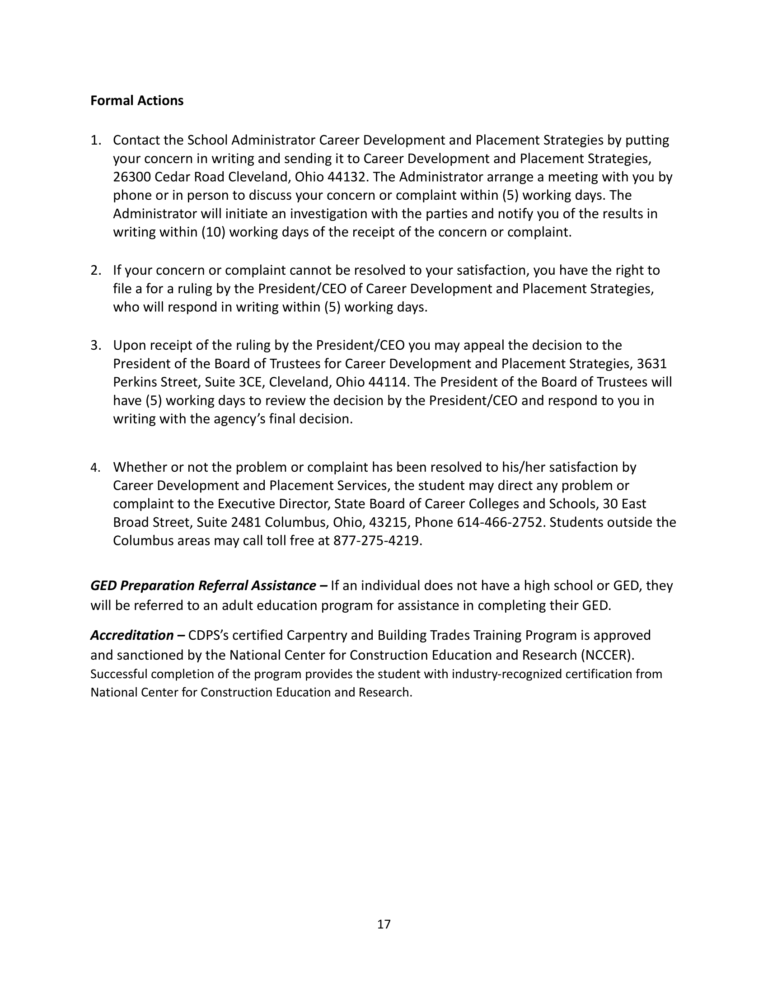Workforce development workshops are provided to improve skills participants need to transition from unemployment or under-employment to full employment and self-sufficiency. The intended outcomes are identifying realistic employment options, overcoming challenges to obtaining that type of employment, improving job search and readiness skills, and obtaining employment. Each workshop is two hours in duration unless noted differently below, and the topics are as follows:
INTRODUCTION TO EMPLOYMENT READINESS
Stimulates dialogue among participants regarding expectations and goals they have set for their employment search campaign. Instructors assess whether participants have realistic goals and expectations for employment.
AN EMPLOYER’S EXPECTATIONS
Provides participants with the opportunity to explore basic labor market information and the advantages of pursuing education beyond high school. It encourages participants to think like employers and evaluate their own behavior.
IDENTIFYING YOUR SKILLS
Introduces the concept of job skills and identifies specific skills of each participant. Participants begin to identify key skills they already possess and skills they will need to develop to be successful in the job market they choose.
DEVELOPING YOUR SKILLS LANGUAGE
Builds upon the Identifying Your Skills workshop. Participants learn that being able to talk about their skills is an important component of interviewing. Participants will become more comfortable communicating what they can offer to prospective employers.
DEFINING YOUR IDEAL JOB/CAREER
This workshop progresses from those previously listed and presents a framework and definition for the ideal job for each participant. Based on structured parameters, participants will document a clear picture of what they consider to be their ideal employment situation.
EXPLORING SPECIFIC EMPLOYMENT ALTERNATIVES
This three-hour workshop uses a variety of activities to identify specific job titles that participants may find of interest. Participants will then research additional information about these jobs, and find actual jobs that correspond to the ideals they have identified.
EMPLOYER PRESENTATION
Participants interact with prospective local employers who answer questions and/or address concerns. Participants test the theoretical information that they have learned in previous workshops.
GETTING READY FOR EMPLOYMENT SEARCH
Covers both career planning and the beginning stages of the job search. Participants learn how to relate their ideal jobs to finding real employment opportunities, including the compromises that must be made.
EMPLOYMENT SEARCH TECHNIQUES THAT WORK
Introduces participants to traditional and nontraditional approaches to finding a job. Information is presented on traditional job search techniques and how to find the “hidden” job market. Participants learn to initiate an effective employment search campaign.
MORE EMPLOYMENT SEARCH TECHNIQUES
Focuses on the practical application of the techniques learned. Participants use basic networking to find potential employers and obtain applications. These “real-life” activities are reinforced with in-class activities like using the Yellow Pages and an introduction to developing a Personal Summary Statement.
CREATING A PERSONAL SUMMARY STATEMENT
Provides participants with an opportunity to learn how to create a Personal Summary Statement. This summary statement provides the job seeker’s basic contact information as well as his/her skills, preferred working conditions and good qualities as a worker.
EFFECTIVE TELEPHONE TECHNIQUES
Provides participants opportunities to use the Personal Summary Statement to develop a telephone script. Participants are exposed to techniques for making effective phone contacts and which will result in getting interviews.
COMPLETING APPLICATIONS AND INTRODUCING RESUMES
Teaches participants how to complete applications, and the advantages and disadvantages of using applications as an entry point to seeking employment. Participants are introduced to the basics of producing a simple and acceptable chronological resume and will construct one for themselves.
ADVANCED RESUMES, COVER LETTERS, THANK-YOU NOTES
Provides participants with information on the various types of resumes and how to construct them. Participants also will learn to generate effective cover letters and thank you notes.
INTERVIEWING BASICS
Introduces participants to a basic framework for understanding the interview process, including various phases of the process and what activities should be accomplished in each. They also learn how to dress and groom for interviews.
ANSWERING PROBLEM QUESTIONS
Exposes participants to several techniques for answering questions during the interview process and opening and closing an interview. Participants learn a structured three-step process for answering interview questions and also how to handle salary negotiations.
INTERVIEW EVALUATIONS
Clients role-play in a 15-minute interview. Interviews are recorded and reviewed for feedback and participants are evaluated on specific points.
ORGANIZING A JOB SEARCH SCHEDULE
Teaches procedures for developing an effective job search campaign and schedule of activities. Participants learn to identify the objective of an effective employment search campaign. They also complete a daily and a weekly employment search schedule.
SURVIVING AND GETTING AHEAD ON THE JOB
Reviews behaviors necessary to avoid getting fired and provides advice for getting ahead in a new job.
TEAM BUILDING
Focuses on the dynamics of personal interaction. Individuals learn to become more effective when in engaging with others. Once they learn the concepts, participants are assigned to groups and work together to build a bridge with Lego or tinker toys.
CDPS | Career Development and Placement Strategies
Akron Office
Carpentry & Building Trades Training
330-687-6129
180 East South Street,
Akron, Ohio 44311
Cleveland Office
330-687-6129
26300 Cedar Rd. Beachwood, Ohio 44122
